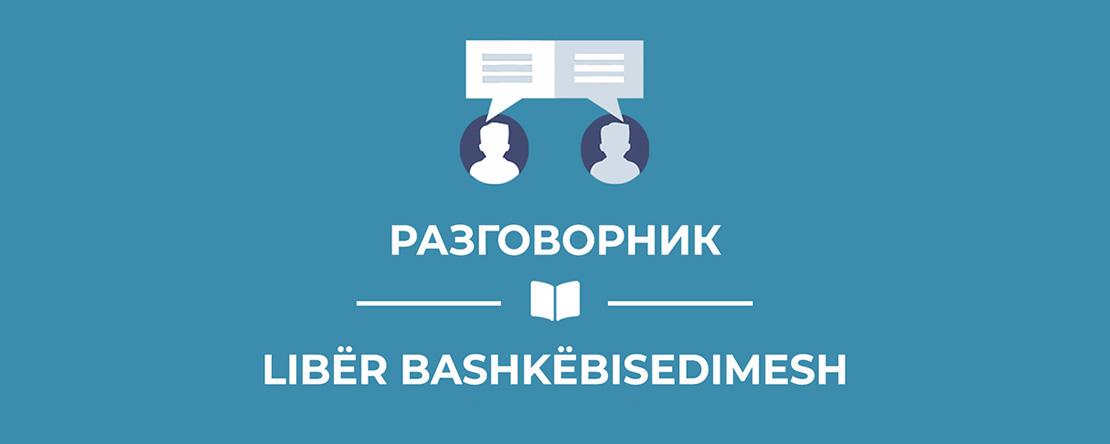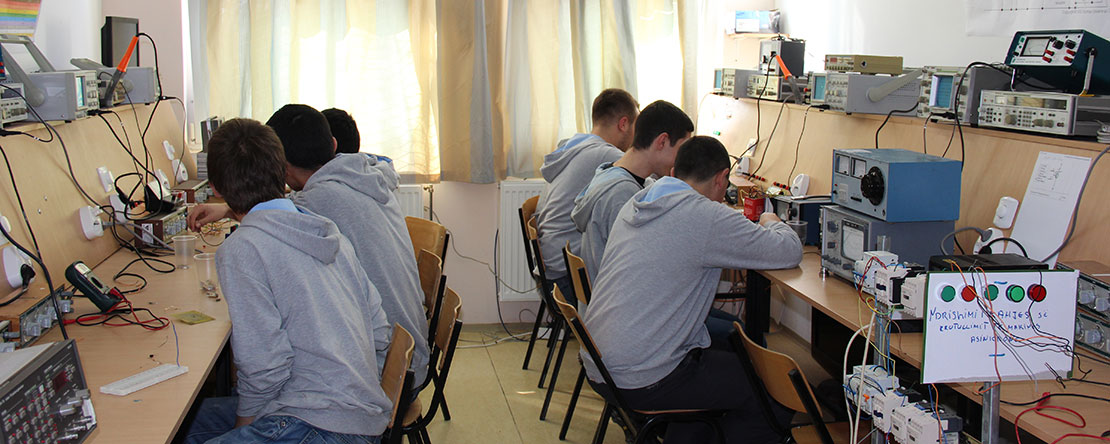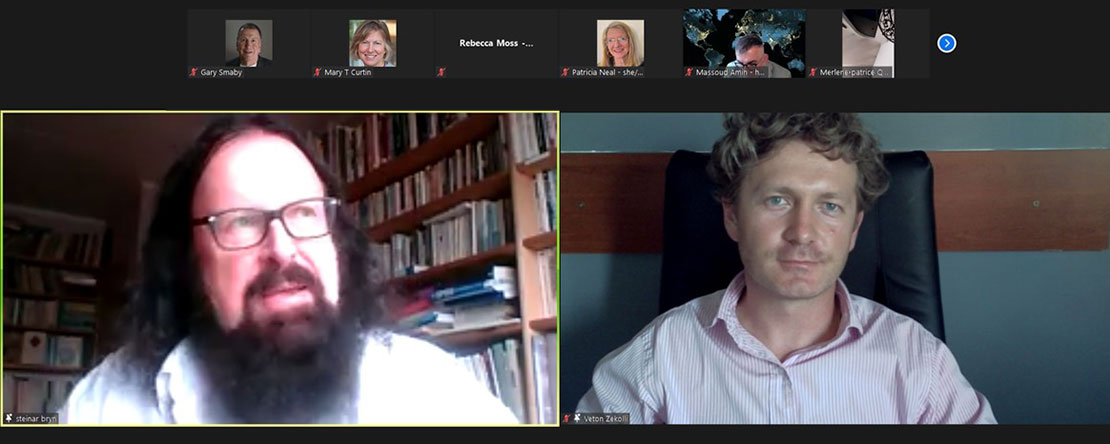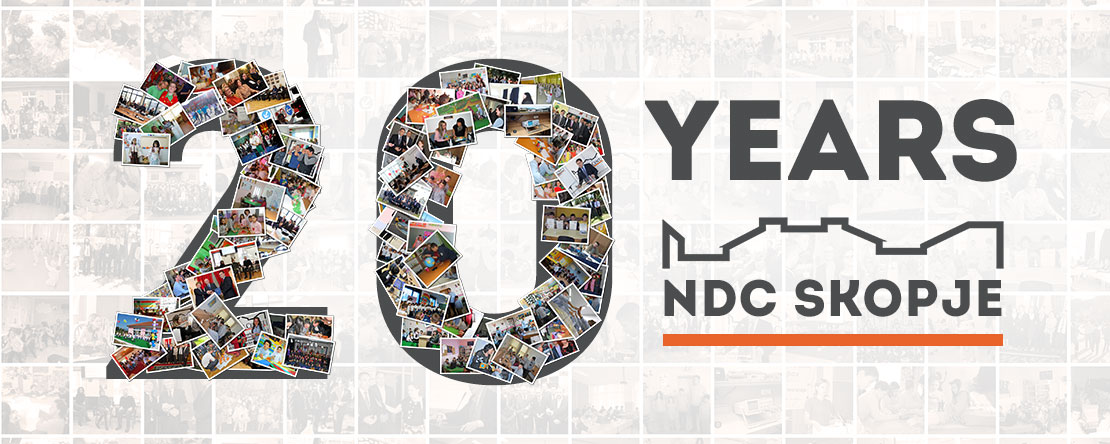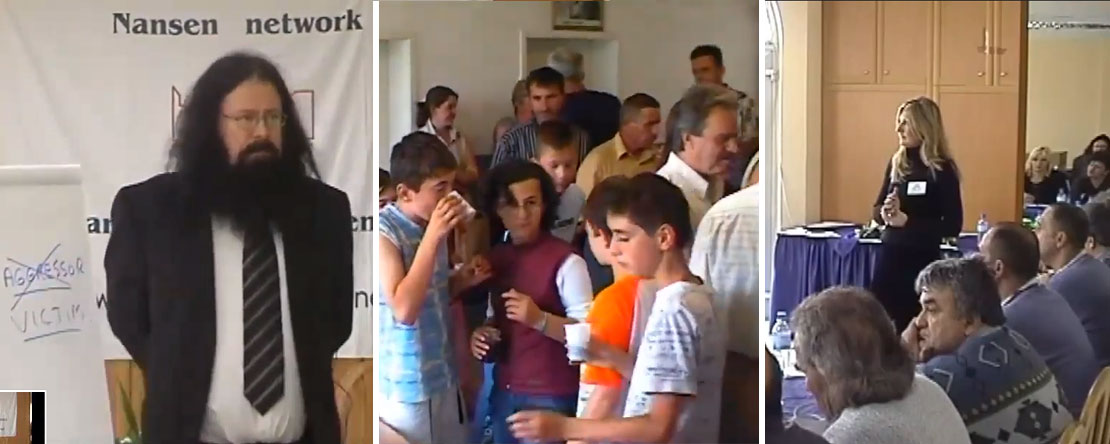Professor Steinar Bryn, founder of the Nansen Dialogue Network in the Balkans, reviewed the role of the NDC Skopje Training Center during the pandemic, as well as the need and readiness for change and adaptation.
It is still too early to know which changes are temporary and which are more fundamental due to the spreading of the Corona virus. What is certain is that we must improve our ability to deal with the unexpected. As a famous politician said, there are three things. First those we know, second those that we know we don’t know and thirdly those that we don’t know that we don’t know. We were caught by surprise. The virus has forced us to rethink our most fundamental concepts of work, health, travel, social gatherings and human communication. The particular challenge for teachers and students is that this also affects the way we think about studying and education. Even the most fundamental unity, the classroom is undergoing changes.
Nansen Dialogue is centered around breaking down stereotypes and enemy images. The central strategy is bridge-building, to bring students together across different cultural division lines. I work at the Nansen Academy in Lillehammer, Norway. Over the last 25 years more than 3000 people from former Yugoslavia have lived and interacted in this rather removed corner of Europe. Through face to face meetings they have experienced that a human being is so much more than their ethnic identity.
The strength of these gatherings was that the participants discovered other aspects of each other’s personality. Although they came as Serbs, Albanians, Macedonians, Croats, Bosniacs etc., and although they came with rather fixed narratives of what caused the breakdown of Yugoslavia, the very meeting with the others expanded their horizons and showed that all people have multiple identities. People could have a real conflict as Macedonians and Albanians, but common interests as lawyers, teachers, parents and dancers. Through building up trust and respect in other arenas in life it became easier to talk about the conflicts themselves and listen to each other’s stories.
Covid-19 has, through restrictions on movement and human gatherings again increased the segregation between people. The work of Nansen Dialogue has suffered, huge gatherings of students have been cancelled. When you must select only the few to interact with, you choose your own people. Borders are closed, strangers are potential carriers of infections and communication slows down across the board.
It is a cliché, but sometimes true, that when a door is closed another window might open. NDC Skopje has met great challenges in how to continue the educational work in North Macedonia. These challenges have been met with a strong digital response. We are good at pointing out the limitations of digital meetings, but under the circumstances it is the best option we got. I have given multiple lectures on Zoom and in the beginning, it was very strange. But there were also obvious advantages. In Zoom seminars people who could not travel would participate. In Nansen Dialogue seminars we could have people meet from different countries at a very low cost. I gave lectures at the closing event of the teacher training “Challenges of Intercultural Education”, a lecture that I previously would give in a conference room in Skopje.
I learned something important. I have experienced that many people can feel a hotel as a solemnly place, and it is not that easy to take the word in front of 100 fellow teachers. When sitting in their own familiar environment some of the teachers felt freer to share their small stories. The digital meeting did not estrange them, actually the opposite, more people felt free to talk. I also gave a Zoom lecture to the module at the Faculty of Pedagogy St.Kliment Ohridski, Skopje. There I sensed more of a Zoom tiredness and the need for a physical meeting.
The full consequences of Covid-19 are not yet known to us but we need to be creative in our response to continue the promotion of the Nansen Model for Inter-Cultural Education. A psychiatrist Viktor Frankl, experienced the most brutal events during WWII, but the essence of his life wisdom was however bad the situation, the human challenge is always how to make the best out of it. That is exactly what I feel NDC Skopje has managed to do with their educational work during Covid-19.
But Nansen Dialogue must continue to promote face to face dialogue as the ultimate advantageous way of communicating. A lecture on Zoom is a planned lecture. The direct relationship building between people that happened in the Nansen Academy could sometimes produce new thoughts and reflections, surprising ideas could be born. In a Zoom meeting you often get to say everything you want to say, but that is also all you get to say. When you leave the meeting you also leave the conversation. In a physical meeting you don’t need to leave, and there is time for the unsaid and the unthought-of to develop in the aftermath of the conversation in a more informal way.


